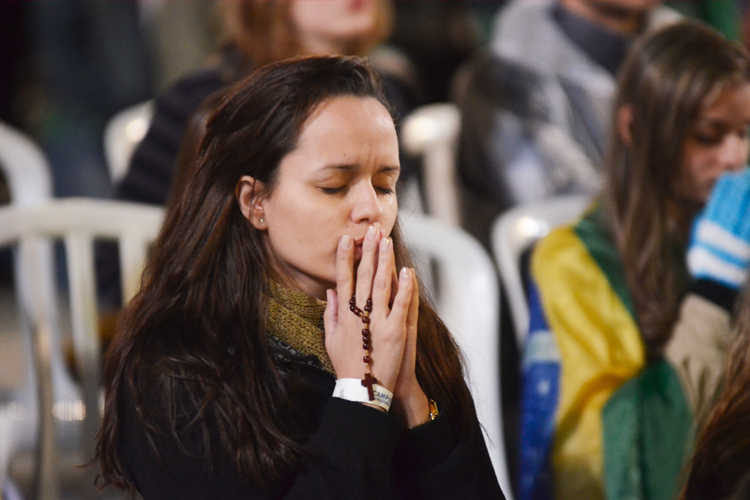
The Personal Christian Life
The personal Christian life is the confirming of one’s life to the pattern of Jesus Christ.
Personal prayer life
Fidelity to daily prayer is essential to the effective living of the Christian life. The Church and her saints suggest certain common principles for Christians in every walk of life: pray each day, preferably at set times and especially at the beginning and end of the day; learn some prayers so that they can be recalled easily; turn to God in prayer even in daily work.
Personal knowledge
Knowledge is essential to the Christian life, because we cannot love what we do not know. It is helpful to: set aside time for reading, especially of Scripture; discuss matters of faith with others; attend courses and talks on the faith.
Personal sacramental life
Since the sacraments begin and sustain Christian life it is beneficial to make use of them more often than is obligatory. Daily Mass and monthly Confession are recommended.
Personal moral life
God calls us to follow his will even in our smallest actions and to offer daily sacrifices for ourselves and others. The lives of the saints teach us to: ask God for grace each day to grow in virtue and avoid vice; make an examination of conscience and moral resolutions at the end of each day; make specific acts of charity and sacrifice, such as fasting.
The Public Christian Life
The public Christian life is the conforming of one’s own family and society to the pattern of Jesus Christ.
Christian society
We are called to pray and work for a Christian society that respects natural law, upholds the dignity of all people, is conducive to evangelisation and encourages everyone to follow their God-given vocations. The Church’s social teaching encourages the common good through the principles of solidarity and subsidiarity. A special emphasis is put on charitable work to help the poor and those on the margins of society. We are all commanded by Christ to practice charity in our societies and especially the ‘works of mercy’.
Evangelisation
We have a responsibility to proclaim the Gospel to others, a proclamation which is called evangelisation. We evangelise in a variety of ways, such as praying for conversions; teaching the faith to those around us; being ready to give an account of the faith to others when the opportunity arises.
Vocation
Every person is called to a particular kind of service. Marriage is the vocation of most people, although some are called to remain single. God also specifically calls some people to consecrate themselves in religious life or the priesthood. To discern and follow our vocation we need to: pray to discover God’s will; examine our talents and the contemporary needs of the Church and the world; pray for strength to pursue our vocation when it has become clear.
Challenging the ‘culture of death’
The attitudes and laws of many states have changed in ways that are contrary to respect for human life.
Abortion is the intentional killing of a child between conception and birth. It is wrong because it attacks the sanctity of a life made in the image of God. Euthanasia is assisted suicide, which prevents God’s completion of a life and corrodes respect for the old and infirm. It also prepares the way for the more general and involuntary killing of those judged unfit to live. Human cloning is the artificial duplication of human beings. In vitro fertilisation (IVF) is artificial non-sexual procreation. They attack the dignity of the child, the sanctity of natural procreation and lead in practice to the mass destruction of embryos. Divorce, cohabitation and civil partnerships destabilise and devalue the dignity of natural Marriage and the family as the true foundations of society. Artificial contraception and homosexual activity separate the gift of sexuality from procreation or married love altogether, contributing to a sexually irresponsible and sterile culture.
It is a work of mercy to avoid these practices ourselves and to help others avoid them by word and example.
This article is originally from ‘CREDO: The Catholic Faith explained’ by CTS.